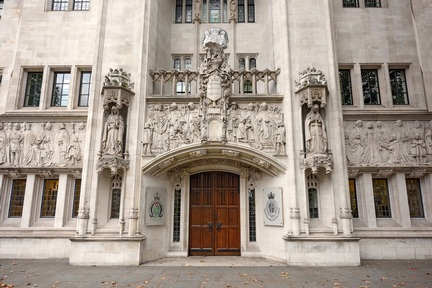Government taken to task over sleep-in-pay as Supreme Court hearing date announced
Whilst the uncertainty over care workers' rights for sleep-in shift work continues, the long-awaited hearing for the Supreme Court has finally been announced, but it’s not until February 2020.

The Supreme Court is the highest court of appeal in the UK, and it is expected that the argument over pay for sleep-in shifts will finally be settled in its appeal hearing scheduled for 12 and 13 February 2020.
At the hearing, the trade union UNISON will be hoping to overturn the decision made by the Court of Appeal last year that the National Minimum Wage (NMW) does not apply to night shift care staff for the time they spend asleep and are available at work.
This means pay regulations only apply when staff are awake for working. Dr Rhidian Hughes, chief executive at the Voluntary Organisations Disability Group (VODG) said until the legal case can be heard in February next year: “Commissioners and providers should be working together to ensure stability in the provision of overnight services.”
He added: “This collaboration is happening in a number of areas. But in other areas there are examples of knee jerk reductions in the fees commissioners pay to providers for overnight support. These fee reductions risk damaging services and adding further pressure to the sector’s workforce retention and recruitment challenges.”
VODG has said it wants the Government to clarify what staff are entitled to and is calling on the Government to:
• Consult widely with workers, employers, commissioners and other stakeholders on an appropriate rate of pay for sleeping at work and, through a statutory instrument or other means, introduce a rate of pay for time spent asleep
• Instruct the Low Pay Commission to, each year, consult, review and recommend a rate for time spent asleep
In a letter of response to VODG’s concerns, the Minister of State for Care, Caroline Dinenage, and Kelly Tolhurst, the Parliamentary Under Secretary of State, said: “Making legislative changes ahead of the Supreme Court ruling would be premature. The Court should take a view on the legislation as it stands. This is because its judgment might bear in unforeseen ways upon the interpretation of any amended legislation."
The ministers warned that any decision made wouldn't have a 'retrospective effect' and that the ruling would only have an effect on future shifts. The letter states: “Any change to legal requirements relating to payment of the National Minimum Wage (NMW) for sleep-in shifts would not have retrospective effect; it would relate only to future shifts and payments. We should not, as others have suggested, rush through legislation at this stage to provide ‘legal clarity’.”
Latest News
 29-Jul-24
Dementia Bus gives carehome.co.uk staff insight into life with dementia
29-Jul-24
Dementia Bus gives carehome.co.uk staff insight into life with dementia
 01-Mar-24
Find out the top care homes in 2024
01-Mar-24
Find out the top care homes in 2024
 21-Mar-23
UK's top care homes in 2023 revealed
21-Mar-23
UK's top care homes in 2023 revealed
 03-Jan-23
carehome.co.uk launches free care helpline
03-Jan-23
carehome.co.uk launches free care helpline
 13-Dec-22
5 mins with Emily Whitehurst, chief operating officer for Constantia Healthcare
13-Dec-22
5 mins with Emily Whitehurst, chief operating officer for Constantia Healthcare